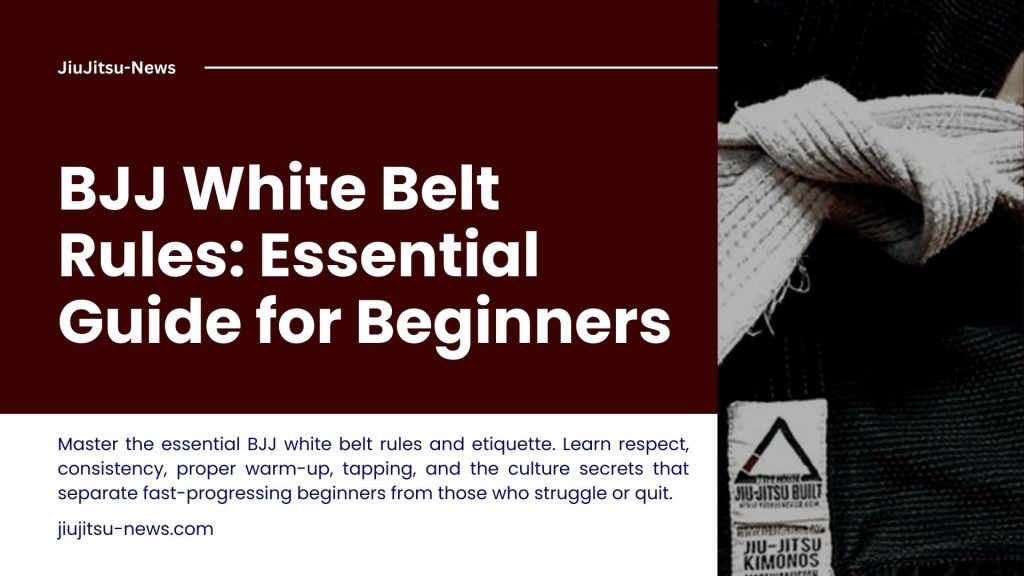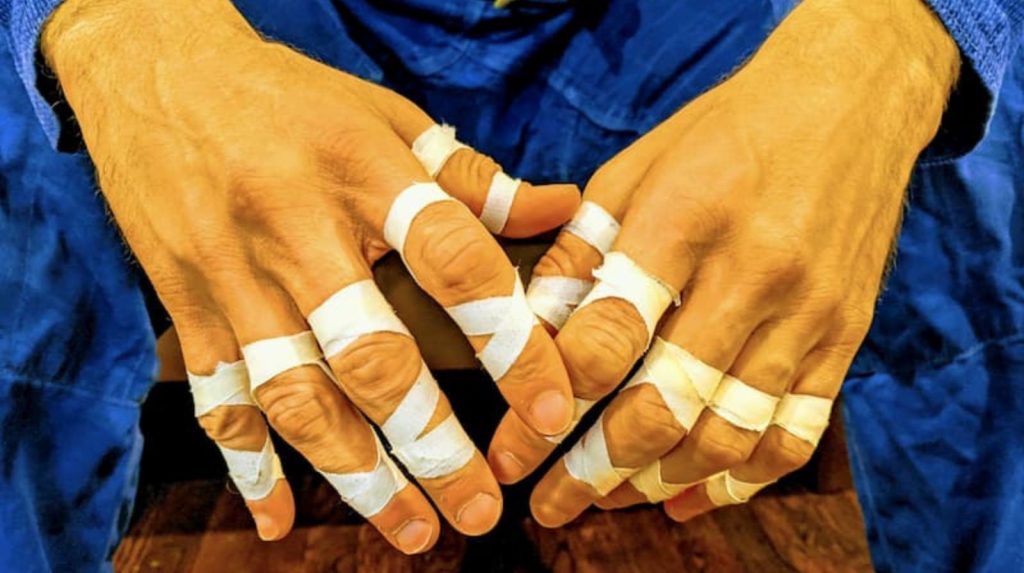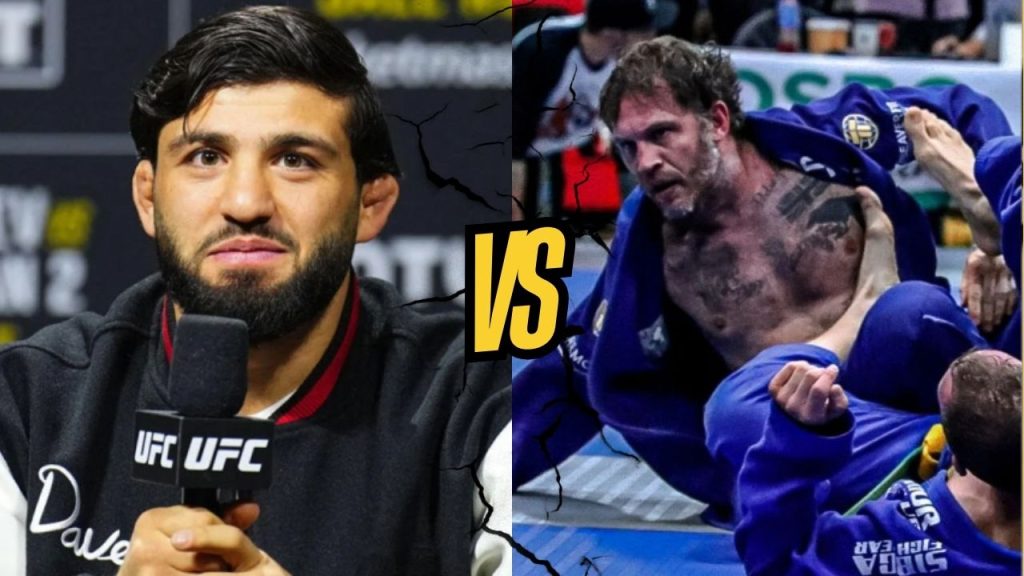You are on the ground, and the grip of your opponent closes on your collar.
Instinct tells you to punch, but space is limited. Rather, you move, break free from the grip, and lock in a choke.
This is Brazilian Jiu-Jitsu (BJJ)—winning without a blow.
Although at first glance Karate and BJJ seem similar, their approaches, competitiveness, and even popularity differ entirely.
Let’s examine how these two martial arts actually stand-up.
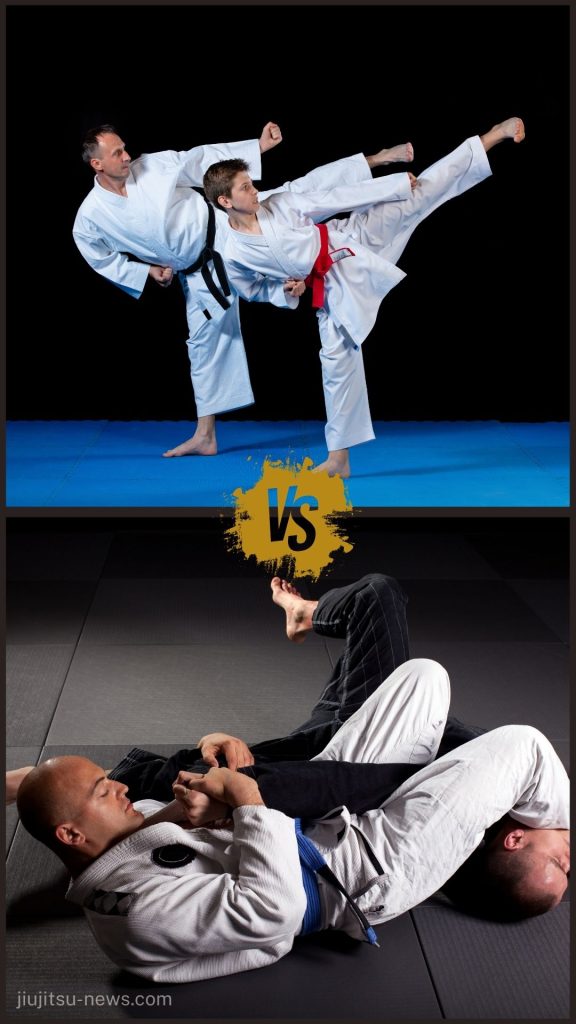
Always found it interesting how Karate and BJJ differ. From the way you fight to the competition regulations, and even their popularity, these two martial arts have different energy.
- Karate Vs BJJ: What Differentiates Their Fighting Techniques?
- BJJ Vs Karate: GIs or Uniforms Differences
- Competition Rules Differences
- Olympic sports for Jiu-Jitsu and Karate?
- Which More Often Shows Up in MMA?
- BJJ or Karate, Which Is More Popular?
- Karate vs BJJ: Which Is Better for Self-Defense?
- In Summary
Karate Vs BJJ: What Differentiates Their Fighting Techniques?
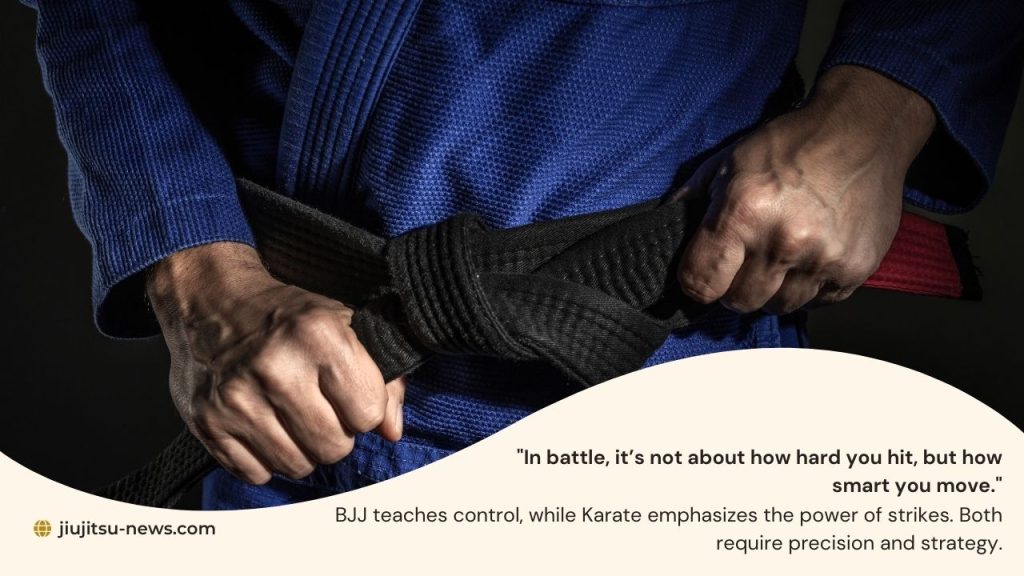
Regarding style, Karate and Jiu-Jitsu cannot be more unlike.
Except in some styles like Combat Jiu-Jitsu, where you see open-palm strikes, there are no strikes in Brazilian jiu-jitsu.
Mostly, though, BJJ is all about ground-based submissions and ground dominance of your opponent.
Conversely, karate is entirely focused on striking. You will see hand or foot-based punches, kicks, and blows.
In Kumite, a kind of karate competition, for instance, combatants get points by striking their opponent cleanly.
Therefore, if your only comparison between the two is their fighting style, karate strikes and Jiu-Jitsu grips and submits are really straightforward.
BJJ Vs Karate: GIs or Uniforms Differences
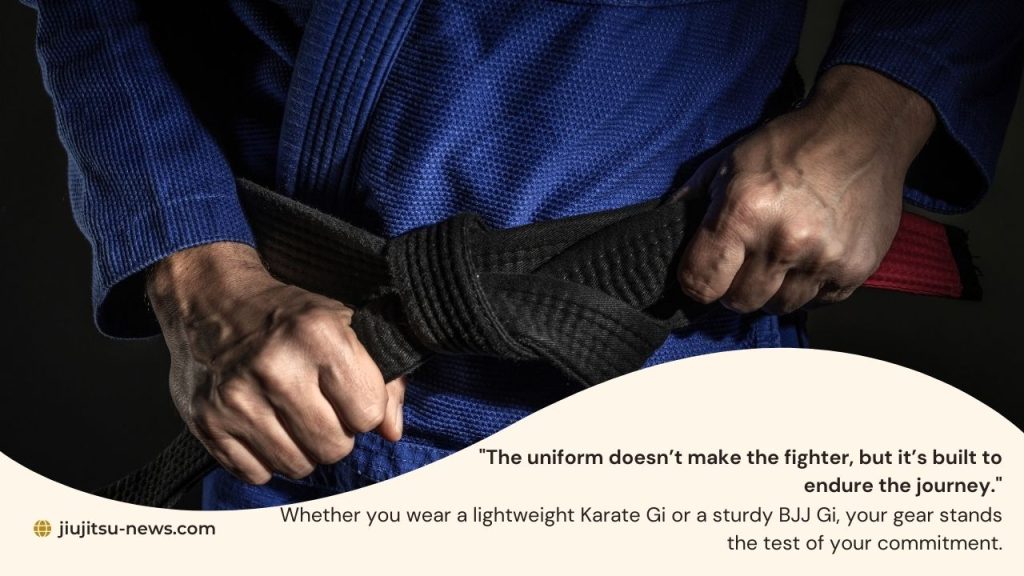
The Gi, or jacket, pants, and belt you wear for training or competition, is unique to both martial arts.
The salient distinction is that because you must grab the neck or sleeves of your opponent during movements, BJJ Gis are thicker and more robust. They absorb all the twisting and straining and are made to last.
Conversely, Karate Gis are far less weight. The Karate Gi need not be as heavy-duty as you are not clutching your opponent’s clothes.
Competition Rules Differences
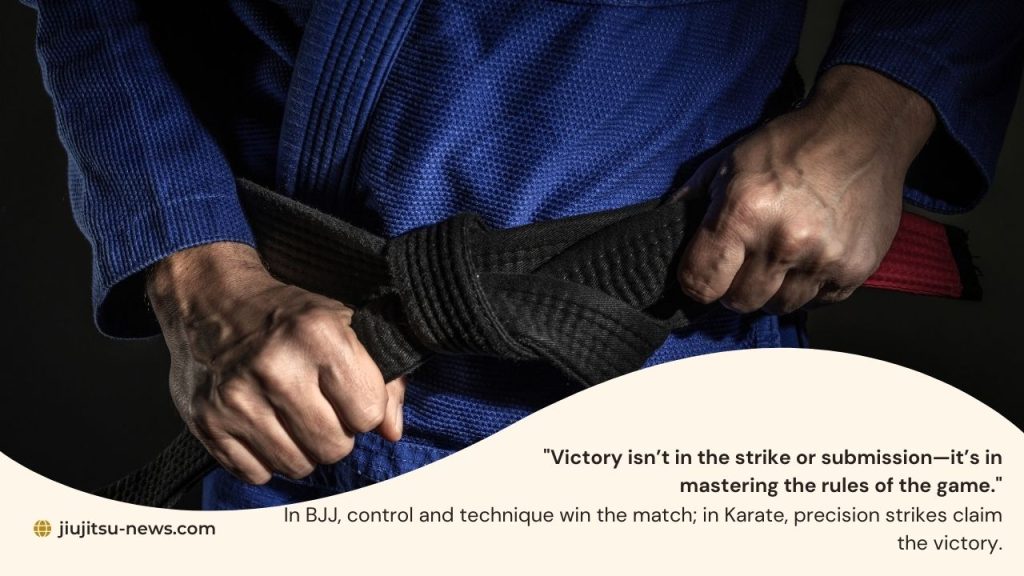
There is no striking in a BJJ competition.
Rather, you want to bring down your opponent and submit them with arm locks or chokeholds.
In BJJ, you might win a match by points or submission.
Still, Karate contests are mostly about hitting.
Karate is a semi-contact sport in some tournaments, such as the Olympics, whereby one can land strikes but it is not intended to be full-force.
In karate, you get points for accurate and clean strikes or kata performances.
Olympic sports for Jiu-Jitsu and Karate?
Things start to get interesting here.
Though there was significant hype regarding Jiu-Jitsu making the 2024 Olympics, that proved to be an April Fool’s joke.
Though there is optimism for 2028, Jiu-Jitsu does not yet appear on the Olympics.
Conversely, Karate had a moment in the Tokyo 2020 Olympics.
Unfortunately, breakdancing will take place on stage instead of the 2024 Paris Games Should Karate make a return to the Olympics, it will probably resemble the 2020 schedule, including Kumite and Kata events.
Which More Often Shows Up in MMA?
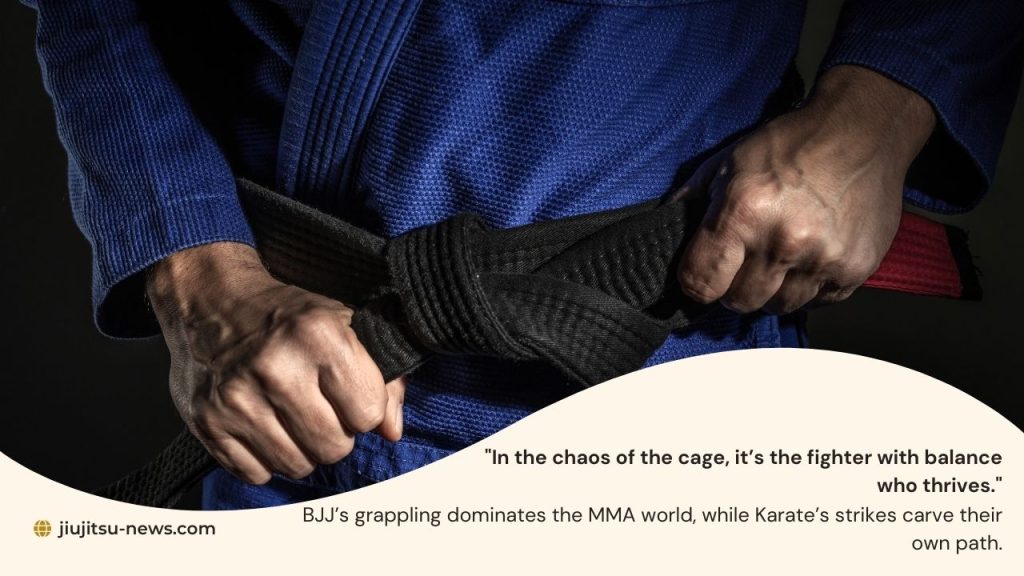
Regarding mixed martial arts (MMA), BJJ is a necessary ability.
Almost every MMA gym will feature it as ground fighting and grappling are rather common in MMA.
Karata? not as much.
Although several MMA combatants have a Karate background, it is not as useful in the cage as other striking disciplines like Muay Thai or kickboxing.
Thus, Jiu-Jitsu surely comes first if you’re trying to choose which one improves your MMA performance.
BJJ or Karate, Which Is More Popular?
Historically, especially in the West, Karate has a longer legacy. After World War II, American veterans returned from Japan and launched it in the United States.
Opening in 1946, the first Karate studio in America became a cultural phenomenon by the 1980s.
At least in the United States, BJJ is somewhat younger on the scene. Developed in the 1920s, it only really began to take off in 1993 when Royce Gracie emerged victorious in the first UFC.
Since then, particularly with the advent of MMA, its appeal has exploded.
Karate vs BJJ: Which Is Better for Self-Defense?
Surely, both Karate and Jiu-Jitsu can be valuable for self-defense.
Still, BJJ is now the preferred martial art for actual self-defense scenarios. The reason is… It guides you on distance management, opponent control, and escape from dangerous areas.
BJJ provides the skills to keep safe should you ever fall on the ground during a fight.
That said, Karate also has advantages for self-defense, especially in terms of striking opponent away from you.
In Summary
Who therefore prevails in the BJJ against Karate combat? To be honest, that’s not quite straightforward. Two quite separate martial arts are involved here.
BJ is all on the ground fighting and submissions; Karate is about striking. In the competition, MMA, or self-defense, both have advantages.
Which one suits you better? Well, that will depend on your search for what?

